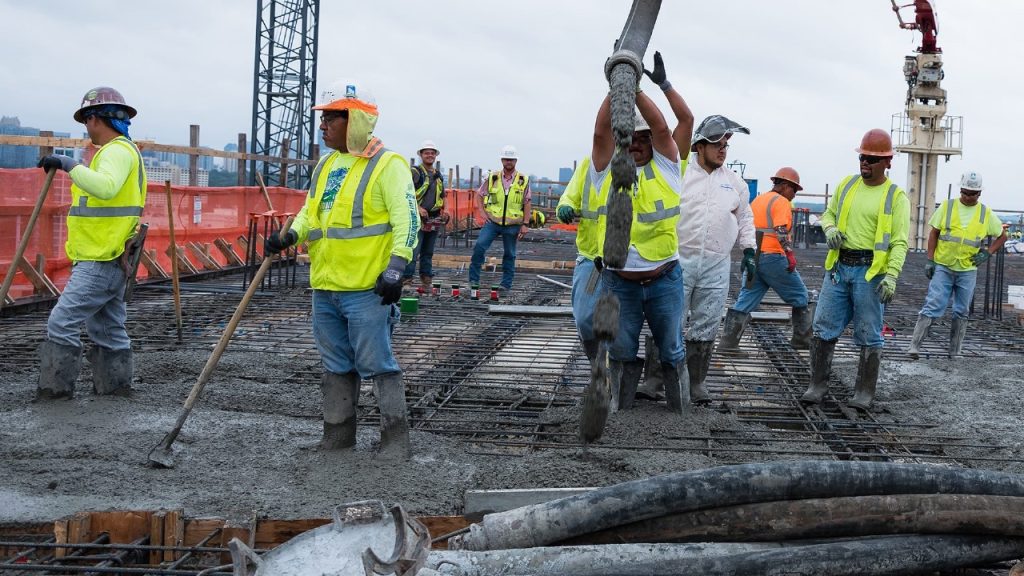Construction is one of the most dynamic and rewarding industries in the world. With continuous growth in infrastructure, housing, and commercial projects, the demand for skilled professionals is higher than ever. If you are looking for a career that combines hands-on experience, creativity, and financial stability, exploring Careers in construction could be your best decision. ABC Central Texas brings you an in-depth guide to seven exciting careers in construction that can shape your future.
Why Choose a Career in Construction?
A career in construction offers a unique blend of benefits. It provides job security, competitive salaries, opportunities for career advancement, and the satisfaction of seeing tangible results from your work. Moreover, construction careers cater to a wide range of interests, from engineering and architecture to project management and skilled trades. The industry is continually evolving with technology and sustainable building practices, making it an exciting field for long-term growth.
1. Civil Engineer
Civil engineers are the backbone of the construction industry. They design, plan, and oversee the development of infrastructure projects such as roads, bridges, and buildings. Civil engineering requires a combination of technical expertise, creativity, and problem-solving skills. Professionals in this field can specialize in areas like structural, environmental, or transportation engineering. With urban development and modernization projects expanding, civil engineers are in high demand.
2. Construction Manager
Construction managers coordinate and supervise construction projects from start to finish. They ensure projects are completed on time, within budget, and according to specifications. This role demands strong leadership, organizational, and communication skills. Construction managers also collaborate with architects, engineers, and contractors, making it a versatile and highly rewarding career path. With experience, professionals can advance to senior management roles or become project directors.
3. Electrician
Electricians play a critical role in construction by installing, maintaining, and repairing electrical systems. Their work ensures that buildings are safe and fully functional. A career as an electrician offers hands-on experience, apprenticeship opportunities, and the potential for self-employment. With the increasing focus on smart homes, renewable energy, and sustainable buildings, electricians have a promising future in construction.
4. Carpenter
Carpenters are skilled tradespeople who work with wood and other materials to build frameworks, furniture, and fixtures. They are essential for both residential and commercial construction projects. Carpenters need precision, attention to detail, and creativity to bring designs to life. The demand for skilled carpenters remains strong due to ongoing housing and remodeling projects, making it a stable and rewarding career.

5. Architect
Architects design buildings that are both functional and aesthetically pleasing. They work closely with clients and construction teams to turn ideas into reality. Architects require strong technical knowledge, creativity, and project management skills. This career offers opportunities for specialization in areas like sustainable design, urban planning, or interior architecture. As cities grow and the demand for innovative spaces increases, architects remain vital to the construction industry.
6. Heavy Equipment Operator
Heavy equipment operators handle machinery such as bulldozers, cranes, and excavators on construction sites. Their work is essential for large-scale infrastructure and commercial projects. Operating heavy equipment requires specialized training, precision, and adherence to safety regulations. This career provides a hands-on work environment, competitive pay, and opportunities for advancement in construction management or equipment supervision.
7. Building Inspector
Building inspectors ensure that construction projects comply with local building codes, safety regulations, and zoning laws. They examine materials, workmanship, and structural integrity to protect public safety. This career requires attention to detail, knowledge of construction standards, and analytical skills. Building inspectors are increasingly in demand as construction standards evolve and new developments continue to emerge.
Benefits of Pursuing Careers in Construction
Choosing a career in construction comes with multiple advantages. First, the industry offers competitive salaries and benefits. Second, many construction roles provide on-the-job training, apprenticeships, and certifications, allowing professionals to advance without necessarily attending a traditional four-year college. Third, construction careers often involve teamwork, problem-solving, and innovation, keeping work engaging and fulfilling. Finally, as urbanization and infrastructure projects expand, long-term job stability is a major benefit.
How to Get Started in Construction
Getting started in construction involves identifying your area of interest, obtaining the necessary education or training, and gaining practical experience. Many careers, such as electricians, carpenters, or heavy equipment operators, offer apprenticeship programs that provide hands-on learning. For roles like civil engineering or architecture, a formal degree is typically required. Networking within the industry and pursuing certifications can significantly enhance career prospects.
Future Outlook for Careers in Construction
The future for careers in construction looks bright. Advances in technology, including automation, 3D printing, and green building techniques, are transforming the industry. Sustainable construction and renewable energy integration are creating new job opportunities. Additionally, infrastructure projects funded by governments and private sectors continue to grow, ensuring high demand for skilled professionals. Those entering careers in construction today can expect steady employment, growth opportunities, and the chance to work on exciting projects that shape communities.
Conclusion
Careers in construction offer a perfect blend of stability, growth, and personal fulfillment. From civil engineering to building inspection, each role provides unique challenges and opportunities for professional advancement. Whether you enjoy hands-on work, design, or management, the construction industry has a place for your skills and ambitions. By choosing a career in construction, you are not only securing your future but also contributing to the development and improvement of society. Explore these seven exciting careers today and take the first step toward a rewarding and impactful profession with ABC Central Texas. From pro advice to what’s buzzing — it’s all waiting on our main page.
FAQ
1. What qualifications do I need to start a career in construction?
Qualifications vary depending on the role. Some positions, like electricians or carpenters, require vocational training or apprenticeships, while others, like civil engineers or architects, require formal degrees.
2. Are careers in construction financially rewarding?
Yes, many construction careers offer competitive salaries, benefits, and opportunities for growth. Roles in management, engineering, and specialized trades tend to be particularly lucrative.
3. Is construction a stable career choice for the future?
Absolutely. With ongoing infrastructure projects, urban development, and technological advancements, the construction industry continues to expand, offering long-term job stability and growth.
